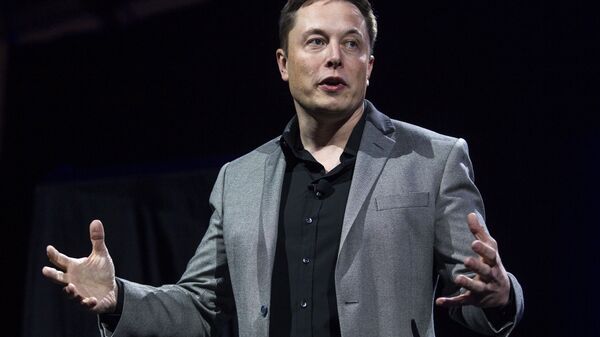Elon Musk has a lot on his plate right now. The founder of SpaceX, Tesla Motors, and PayPal, he’s also spearheading an effort to make the Hyperloop – the uber-fast transportation system of the future – a reality.
But the entrepreneur also has his sights set on the Internet.
No matter how ubiquitous the web may seem to anyone reading this article right now, there is still a shockingly high portion of the global population which doesn’t have access. Roughly 3.8 billion people live in areas too remote to be wired to the worldwide infrastructure.
But earlier this month, SpaceX filed a request with the US Federal Communications Commission for permission to encircle the planet with telecom satellites capable of beaming the Internet to anywhere on Earth.
The technology for satellite Internet has existed for a while, but has suffered practical setbacks. The distance at which most satellites orbit isn’t exactly conducive to reliable service. Placing satellites in low Earth orbit – as SpaceX plans to do – allows for better connections, but decreases range.
Google – which has now invested in SpaceX’s efforts – announced a similar plan in 2014, and estimated it would need 180 satellites in order to span the whole planet. But Musk has an even grander strategy. SpaceX’s plan calls for 4,000 satellites to remain in orbit.
How much is all of that going to cost? The company hasn’t officially released any estimates yet, but Google said it would set aside over $1 billion. In January, Musk told Businessweek that he expected the system to reach at $10 billion.
Still, SpaceX may have an advantage. With its primary focus on aerospace, SpaceX could streamline the launch process. Whereas any competitors would have to rely on third party entities to launch its satellites, SpaceX can use its own rockets.
And SpaceX isn’t the only one trying to elbow its way into low Earth orbit. OneNet, founded by Greg Wyler and backed by Richard Branson’s Virgin Group, has already seized a number of licensing rights for its own satellite Internet project.
"Greg has the rights, and there isn’t space for another network," Branson told Businessweek. "If Elon wants to get into this area, the logical thing for him would be to tie up with us and if I were a betting man, I would say the chances of us working together rather than separately would be much higher."
While satellites could make the web truly global, there could also be an added long-term benefit. Speaking to Stephen Colbert last week, Musk offhandedly indicated that Mars could be terraformed by nuking the planet’s polar regions.
If SpaceX has broad sights set on colonizing the Red Planet – something NASA is also looking into – then satellites could be crucial in adding another planet to the worldwide web.





